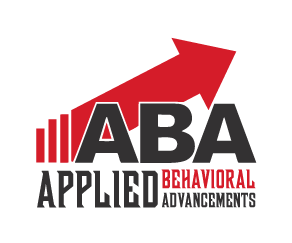Services
Since 2007 ABA has provided behavior support and related services to the people of Kentucky—improving lives through Applied Behavioral Analysis.
What is Applied Behavior Analysis?
Applied behavior analysis uses the knowledge of how behaviors are learned and how they can be changed to improve specific behaviors, establish new behaviors, and maintain positive behaviors.
Applied Behavior Analysis considers how environment impacts behavior and works to facilitate change that can be seen in real life situations. ABA is useful in addressing a number of problem behaviors such as physical aggression and elopement. ABA therapy can also be used to help individuals learn social and communication skills.
Areas of expertise include:
- RVerbal Aggression
- RPhysical Aggression
- RProperty Destruction
- RSelf-Injurious Behavior
- RPICA (eating non-edibles)
- RElopement
- RInappropriate Sexual Behaviors
- RAutism Spectrum Disorders
- RMental Illness
- PAnd Many More
ABA provides a wide variety of services that can be utilized in various settings including:
- RFunctional Behavior Assessments
- RBehavior Support Plan Development
- RTraining for Caregivers
- RMonitoring of Implemented Plans
- REarly Intervention Services (Autism)
- RIn-home Behavior Therapy
- RIDD/DD Crisis Services
- RPsychological Services
- RCommunity Living Support
- ROccupational Therapy
- RPhysical Therapy
- RSpeech/Language Pathology
- RSupported Employment
- RPerson-centered Coaching
- RCommunity Access
- RPersonal Assistance
- RIDD/DD Waiver Programs
- RAdult Psychiatric Hospitals
- RICF/IDD
- RSchool Systems
- RFamily Homes
- RAdult Day Training Centers
- RIDD/DD Independent Living Sites
In addition to private insurance and Medicaid, ABA has provided care to individuals through the following funding sources:
For individuals with developmental disabilities living in a community residential setting
For individuals with developmental disabilities who live with their family/guardian
For individuals with developmental disabilities under the age of 21 who are no longer living in their family home
For individuals who have been diagnosed with a brain injury
For children who have been diagnosed with autism–early intervention services
CMHC Crisis Services:
For individuals with developmental disabilities that are in acute behavioral crisis
Determined on a case-by-case basis
Please contact our director of programming, Amanda Southard, to find out more about payment options and funding that may be available to you.
What To Expect from ABA’s Behavioral Support Services
Functional
Assessment
6-8 Weeks
Behavioral
Support Plan
2 Weeks
Monitoring
of the BSP
Progress
Notes
